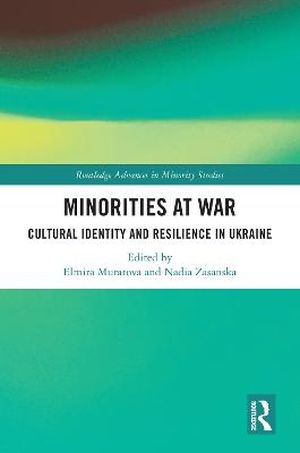
This collection focuses on Ukraine’s ethnic, religious, and linguistic minorities who in recent years have undergone forced displacement, emigration, the destruction of familiar ways of life, and a transformation of identity and language behaviour. The book examines the impact of Russia's war against Ukraine, which began with the annexation of Crimea and the war in Donbas in 2014. It shows what happens to the cultural identities of minority groups and considers the mechanisms and components of their resilience in times of crisis. Key themes addressed include minorities’ collective memory and survival strategies, mobilization and humanitarianism, forced displacement and the preservation of identity. While most works on the Russo-Ukrainian war focus on the international context and the causes of the war and its humanitarian consequences for the population of Ukraine and the region as a whole, this book seeks to mainstream the issue of cultural minorities, which is often neglected in the coverage of this type of conflict.
The book will be of interest to academics, researchers and policy-makers working in the areas of Law, Political Science, Anthropology, Human Geography, Religious Studies and War and Peace Studies.